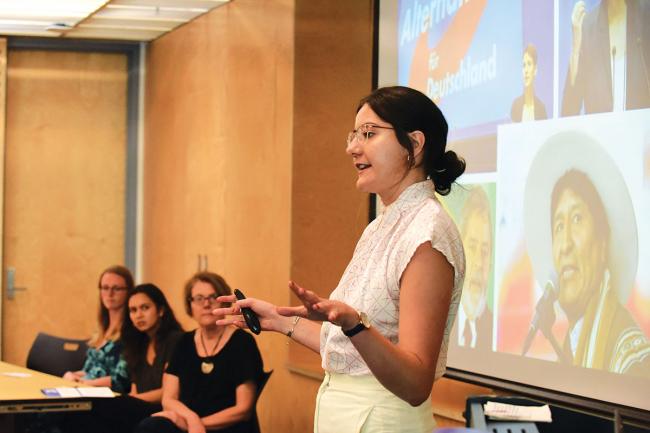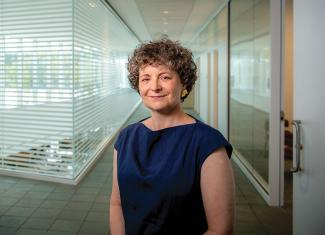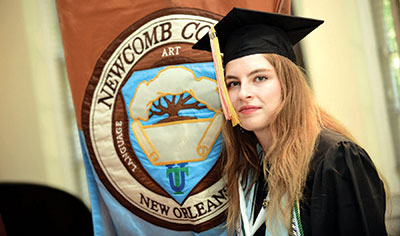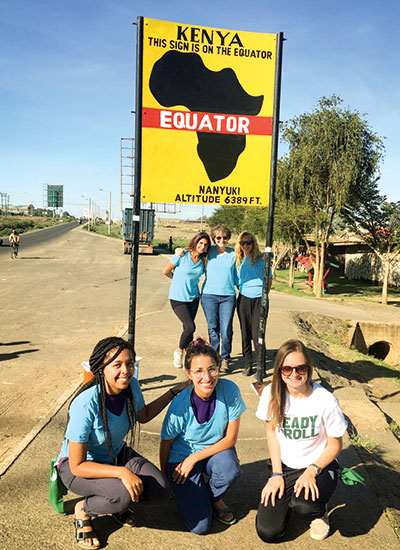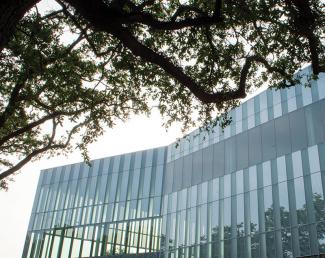Above photo: Lipaz Avigal, a political economy and Spanish major, presented a comparative approach to populist movements in France and Bolivia at the Newcomb Scholars Symposium held on April 13, 2019. The symposium is an opportunity for scholars to share the results of their academic work. (Photo by Cheryl Gerber)
The program for the annual Newcomb Scholars Symposium, held each spring on Tulane’s uptown campus, is a testament to the breadth and gravity of the H. Sophie Newcomb Memorial College Institute, also known as the Newcomb Institute.
The symposium gives graduating scholars an opportunity to share the results of their yearlong independent research projects capping four years of study and to describe in detail the scope of their work.
Kelsey Williams, a public health major, designed a peer education program geared toward reducing teen pregnancy among AIDS orphans in Nairobi, Kenya. Juliet Chin, who double majored in digital media production and cultural anthropology, produced a documentary on the Chinese community of Jamaica, the birthplace of her father. Jacqueline Wagner, a sociology major, analyzed the effects of fertility apps on the right of women to make informed choices about their reproductive health.
A few days later, Tulane President Mike Fitts praised the Institute as “the beating heart of Tulane University and everything we stand for: excellence, engagement and community.”
Speaking at Under the Oaks 2019, an annual ceremony honoring distinguished students, Newcomb alumnae award recipients and 50-year graduates of Newcomb College, he said, “The Newcomb Institute embodies my vision for Tulane. It adds depth to the undergraduate experience. It facilitates interdisciplinary scholarship. It allows our students to make connections in math and music, science and history. It engages them in meaningful research.”


